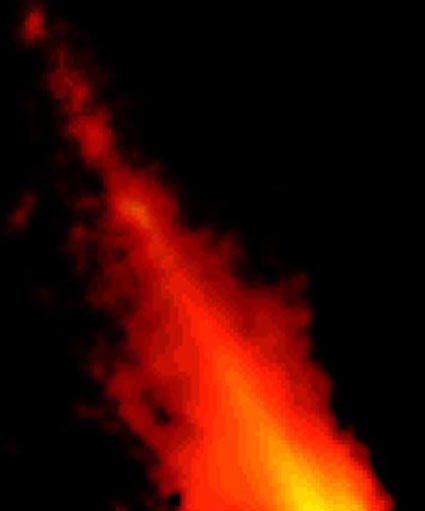Astronomy Picture of the Day
Discover the cosmos! Each day a different image or photograph of our fascinating universe is featured, along with a brief explanation written by a professional astronomer.

Credit: Paul Kalas (STScI) et al., WFPC2, HST, NASA |
Explanation: An unusual dust disk surrounds nearby star Beta Pictoris. Discovered in 1983, astronomers are still learning just how unusual this disk is. Recent images and computer simulations indicate that the disk contains several elliptical dust rings larger than our own Solar System. The above image taken with the Hubble Space Telescope uncovered evidence of these rings as apparent knots in the edge-on disk. The ring model naturally explains why the disk protrudes longer on one side than the other. These rings might have been formed when a nearby star passed Beta Pic about 100,000 years ago. Astronomers are searching for this intruder star, which is not the foreground star visible in the wider image. Beta Pic is only 50 light-years away and thought to harbour planets. |
< | Archive | Index | Search | Calendar | Glossary | Education | About APOD | >
Authors & editors:
Robert Nemiroff
(MTU) &
Jerry Bonnell (USRA)
NASA Technical Rep.:
Jay Norris.
Specific rights apply.
A service of:
LHEA at
NASA/
GSFC
&
Michigan Tech. U.